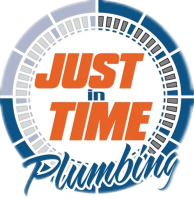Choosing the right water heater is a crucial decision for homeowners, impacting energy efficiency, utility costs, and overall comfort. Two popular options on the market are tankless water heaters and traditional tank-style water heaters. In this blog post, we’ll compare these two types of water heaters, weighing the pros and cons to help you make an informed decision for your home.
Tankless Water Heaters
Pros:
- Energy Efficiency:
- Tankless: Heats water on demand, minimizing standby heat loss common in traditional tanks.
- Traditional: Continuously heats and stores water, leading to energy loss over time.
- Space-Saving Design:
- Tankless: Compact and wall-mounted, saving valuable floor space.
- Traditional: Larger and requires dedicated space for installation.
- Endless Hot Water:
- Tankless: Provides a continuous supply of hot water as needed.
- Traditional: Limited to the tank’s storage capacity; may run out during high-demand periods.
- Longer Lifespan:
- Tankless: Typically lasts 20 years or more with proper maintenance.
- Traditional: Usually has a lifespan of 10-15 years.
- Lower Operating Costs:
- Tankless: Reduced energy consumption leads to lower monthly utility bills.
- Traditional: Higher operating costs due to continuous heating and standby energy loss.
Cons:
- Higher Initial Cost:
- Tankless: Requires a larger upfront investment for the unit and installation.
- Traditional: Generally more affordable initially.
- Installation Complexity:
- Tankless: Installation may require changes to gas lines or electrical systems.
- Traditional: Easier installation, often a direct replacement for existing tank heaters.
Traditional Tank Water Heaters
Pros:
- Lower Initial Cost:
- Traditional: Generally more budget-friendly for both the unit and installation.
- Tankless: Requires a larger upfront investment.
- Simple Installation:
- Traditional: Often a straightforward replacement for existing tank water heaters.
- Tankless: May require modifications to accommodate the new system.
- Consistent Water Temperature:
- Traditional: Steady water temperature as hot water is continuously available.
- Tankless: May experience temperature fluctuations during high-demand periods.
- Low Maintenance:
- Traditional: Simpler maintenance requirements, with flushing recommended periodically.
- Tankless: Requires more regular maintenance to prevent scaling and ensure optimal performance.
Cons:
- Limited Lifespan:
- Traditional: Typically lasts 10-15 years, requiring replacement sooner than tankless units.
- Tankless: Longer lifespan, offering better long-term value.
- Standby Heat Loss:
- Traditional: Constantly heats and stores water, leading to standby heat loss.
- Tankless: On-demand heating reduces standby energy consumption.
- Higher Operating Costs:
- Traditional: Higher monthly utility bills due to continuous heating and standby energy loss.
- Tankless: More energy-efficient, resulting in lower operating costs.
Conclusion:
In the debate between tankless water heaters and traditional tank-style water heaters, the choice ultimately depends on your household’s specific needs, budget, and long-term goals. If energy efficiency, space-saving, and a longer lifespan are priorities, a tankless water heater may be the ideal choice. On the other hand, if initial cost and simpler installation are more crucial, a traditional tank-style water heater might be the better fit.
Consider consulting with the experts at Just in Time Plumbing to evaluate your home’s requirements and determine the best water heating solution for you. Making an informed decision now can lead to years of reliable and cost-effective hot water supply.

